CPHI Barcelona Sustainability Partner Interview – UPS Healthcare committing to communities
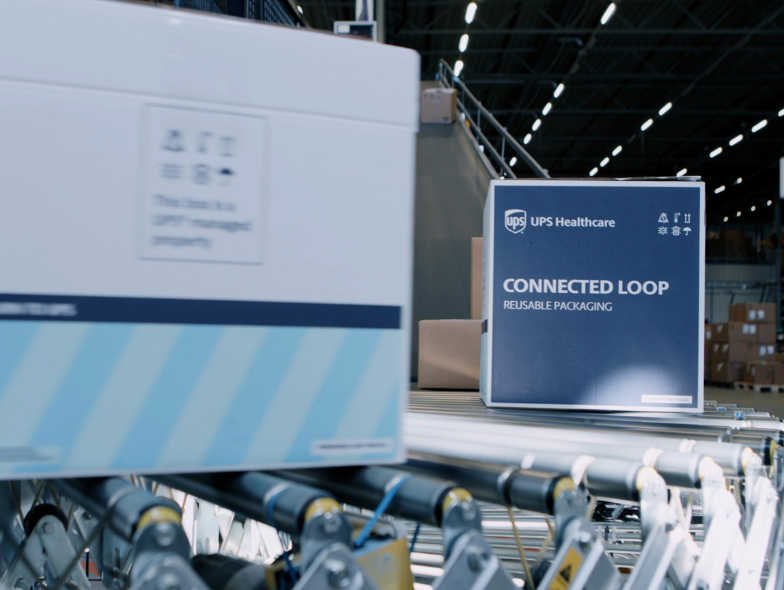
UPS Healthcare, a leading logistics company in supply chain optimisation, has partnered with CPHI Barcelona to support sustainability initiatives, to be highlighted at the CPHI Worldwide event in Barcelona in October 2023.
In the following interview, Cathy O'Brien, Vice President of International Sales at UPS Healthcare, gives us an insight into UPS Healthcare's values as a company and their vision for the future health of the planet.
 Please could you introduce yourself and your role at UPS Healthcare?
Please could you introduce yourself and your role at UPS Healthcare?
I am Cathy O’Brien, Vice President of International Sales at UPS Healthcare, with responsibility for driving revenue growth and supporting global healthcare customers with supply chain solutions and improvement initiatives. I’ve been working in the Healthcare Transportation & Logistics sector for over 20 years in various leadership roles within Sales & Marketing.
Could you please outline UPS’ commitments and targets for sustainability, across environmental and social priorities?
At UPS, sustainability is not just a promise, it reflects our plan of action and has done throughout our 116-year history. We operate one of the largest airlines in the world, as well as the world’s largest private fleet of alternative-powered vehicles and so we have a responsibility to put sustainability at the core of our operations.
By doing so, we can take a holistic approach to help create more equitable, safer and healthier communities to build a better planet. This means the creation of more environmentally sustainable solutions: introducing innovative delivery methods for crowded cities, investing in next-generation vehicles, route optimisation technologies, funding community led initiatives, and developing people and partnerships with customers to drive the innovations needed for a carbon neutral future – all supporting the communities where we work and live.
In 2021 we set several targets, including our pledge to be carbon neutral across scope 1, 2 and 3 emissions in our global operations by 2050. Our interim 2035 environmental sustainability targets include:
• 50% reduction in CO2 per package delivered for its global small package operations (2020 base year)
• 100% of company facilities powered by renewable electricity (we’re 100% renewable in most European markets)
• 30% of the fuel used in its global air fleet be sustainable aviation fuel
In addition, we announced our goal to invest in communities and positively impact the life of 1 billion people by 2040.
‘Improving the well-being of 1 billion lives by 2040’ – This is a brilliant target from UPS, how are you hoping to achieve this and how will it be measured?
We plan to hit these targets through the following initiatives working with our own teams and partners to ensure we account for our activities accurately:
• Invest at least 25% of The UPS Foundation funding toward addressing systemic education and economic barriers and creating opportunities for underserved women, youth, and marginalised communities.
• Mobilise 30 million volunteer hours by 2030 to deliver systemic impact through local community engagement.
• Plant 50 million trees by 2030 to advance environmental justice and a more sustainable world.
UPS states that they have, in their 116 year history, always had a commitment to the communities they serve, with social and environmental stewardship being a large part of this, how has this stance developed at UPS over the decades, especially in more recent years?
We only need to look to the amazing advances made during the deliveries of the COVID-19 vaccine a few years ago, where we deployed the latest technologies to get millions of vaccines to even the most remote and underserved communities at the right time and temperature.
We have made good progress on these areas throughout our history but have more work to do when it comes to delinking carbon emissions from our growth and reducing our air emissions. Going forward, we will continue to use our scale and people, alongside our customers, suppliers and public-private partners, to deliver real change. To do so, reimagining our network with innovation-driven investments that include electric ground and air vehicles, cleaner-burning fuel and climate-conscious facilities.
How are you using technology and infrastructure in different aspects of your services to progress more sustainably?
As an industry, it is our responsibility to take meaningful steps to every stage of the supply chain.
Whether it’s looking at the latest smart grid technology to power our facilities with renewable energy, investing in reusable packaging solutions that are 60% more carbon efficient than their single use counter parts, or utilising electric or alternative fuel vehicles, we understand there is no ‘silver bullet’ – it will take a host of solutions to help us meet our goals.
Importantly, we’re also seeing a range of efficiency (and as a result, sustainable) gains from our next generation of products, including UPS Premier. By utilising these digital solutions, we can better optimise our deliveries, and can quickly re-route shipments to get where they need to be, minimising waste.
How do you track your energy consumption and emissions at UPS, how do you use this data, and should there be more reporting of this information across the industry to meet goals?
We know that most of the pharma industry’s emissions are Scope 3, or those outside of their direct control like packaging and transport. We understand how critical reporting is for our customers to plan and meet their climate goals, and we’ve seen a steady increase in our in carbon reporting solutions.
We provide a robust portfolio of GHG (Greenhouse Gas) reporting solutions to match their needs – working with independent partners where needed. For example, our carbon neutral shipping is verified by SGS, an inspection, testing, and verification company. This means that you can have confidence in UPS carbon neutral to mitigate the climate impact of your shipment.
Through our partners and own tools, we can calculate and provide our network CO2 emissions generated over all three scopes engaged in transporting our customer’s shipments.
Reporting, when conducted in the right manner, can be a powerful tool for us all. Allowing us to learn and collaborate with one another.
Why is it so important that events like CPHI Barcelona highlight sustainability in the industry, and is there more that could be done?
Sustainability is one of the most pressing issues for the healthcare industry. It can often be seen as a burden, but as we’ve seen from our own experiences with renewable electricity and reusable packing being sustainable doesn’t just help the environment – it makes business sense too.
We’ve already discussed the challenge of Scope 3 emissions, which requires a whole ecosystem of partners to solve. It’s going to take the work of business and government collaborating to solve these challenges, the more honest and open discussions we are having, the better.
To book a meeting with UPS Healthcare at CPHI Barcelona, see here.
Related News
-
News CPHI Pharma Awards 2023 – Supply Chain Excellence Winners: Catalent Case Management Services
After another year of impressive nominations for the CPHI Pharma Awards our winners were announced at CPHI Barcelona in October. In this series of interviews, we speak to the people and teams behind the award-winning projects, concepts, and technologie... -
News CPHI Pharma Awards 2023 – API Development and Innovation Winners: Snapdragon Chemistry, a Cambrex Company
After another year of impressive nominations for the CPHI Pharma Awards our winners were announced at CPHI Barcelona in October. In this series of interviews, we speak to the teams behind the award-winning projects, concepts, and technologies. -
News Navigating the Future: Challenges and Opportunities in Pharma Innovation and Investment – CPHI Barcelona 2023 Roundtable Report
In this comprehensive downloadable report, hear from a range of experts in finance and investment in the pharma industry on what investment trends will be shaping the future of the industry, in Catalonia, and the wider world. -
News CPHI Barcelona 2023: Partnering for Success – Managing Outsourcing Relationships to Optimise Manufacturing Operations
During CPHI Barcelona 2023, insightful content sessions offered attendees the chance to explore trending topics with expert speakers and panellists. Here, we summarise what the pharma industry and supply chain are talking about the most. -
News CPHI Podcast Series: The 2023 Retro – what have we learnt from the past year in pharma?
Welcome to the last episode of 2023! Digital Editor Lucy Chard is joined by her teammates in a special retrospective episode to close out the year. Guests Vivian Xie, Editor for CPHI Online and Tara Dougal, Content Director for Pharma, discuss their hi... -
News CPHI Pharma Awards 2023 – Accelerating Innovation Winners: React4Life
After another year of impressive nominations for the CPHI Pharma Awards our winners were announced at CPHI Barcelona in October. In this series of interviews, we speak to the teams behind the award-winning projects, concepts, and technologies. -
News CPHI Pharma Awards 2023 – Regulatory & Compliance Winners: Lambda Therapeutic Research Ltd.
After another year of impressive nominations for the CPHI Pharma Awards our winners were announced at CPHI Barcelona in October. In this series of interviews, we speak to the teams behind the award-winning projects, concepts, and technologies. -
News CPHI Barcelona 2023: Loading Potential – Artificial Intelligence for Pharma Manufacturing
During CPHI Barcelona 2023, insightful content sessions offered attendees the chance to explore trending topics with expert speakers and panellists. Here, we summarise what the pharma industry and supply chain are talking about the most.
Position your company at the heart of the global Pharma industry with a CPHI Online membership
-
Your products and solutions visible to thousands of visitors within the largest Pharma marketplace
-
Generate high-quality, engaged leads for your business, all year round
-
Promote your business as the industry’s thought-leader by hosting your reports, brochures and videos within your profile
-
Your company’s profile boosted at all participating CPHI events
-
An easy-to-use platform with a detailed dashboard showing your leads and performance

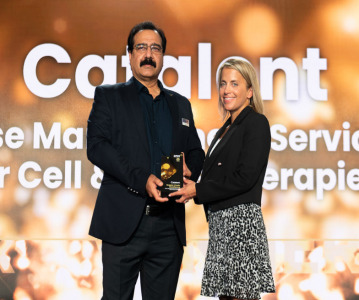
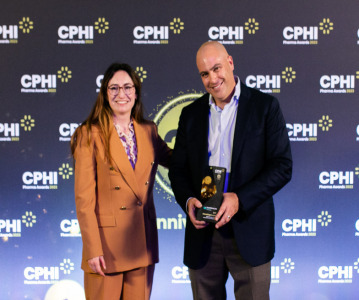


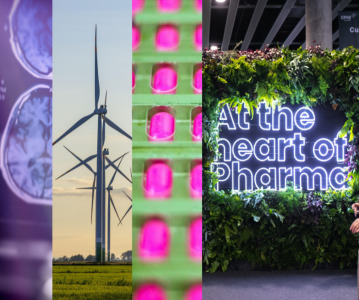
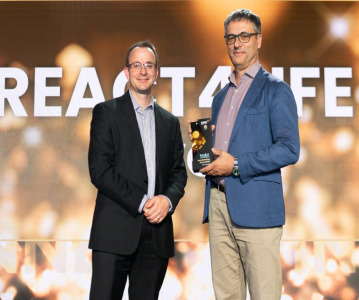

.png)